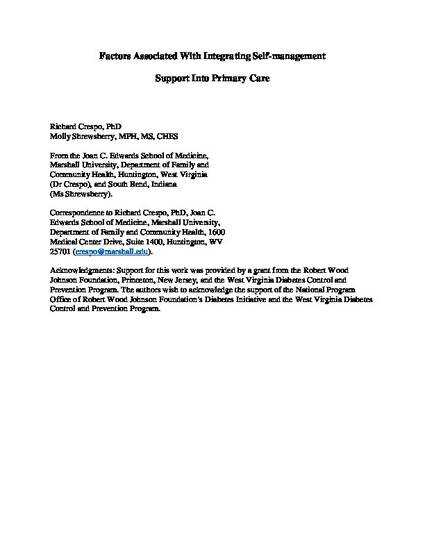
Purpose
The purpose of this article is to expand the understanding of self-management support by describing factors that contribute to implementing a comprehensive self-management program in primary care.
Methods
Four rural health centers in medically underserved areas participated in a study to document the implementation of a self-management program. This program consisted of a social marketing plan and decision-making tools to guide patients in making self-management behavior changes. The stages of change constructs of the transtheoretical model were used to design the social marketing plan. Key informant interviews were conducted at 6-month and 9-month intervals to document the implementation process. A standardized set of questions was used in the interviews. The data from the interviews were analyzed using content analysis techniques.
Results
One of the principle findings is that self-management support requires putting a system in place, not just adding a new component to primary care. The health centers that fully implemented the self-management program made an organizational commitment to keep self-management on the agenda in management meetings, clinical staff set the example by adopting self-management behaviors, and patient self-management support was implemented in multiple patient care venues.
Conclusion
Primary care centers with limited financial resources are able to integrate self-management support into their system of chronic illness care.

This is the Authors’ Accepted Manuscript.
The version of record is DOI: 10.1177/0145721707304138 available from Sage Publications at http://tde.sagepub.com/content/33/Supplement_6/126S.short
Copyright © 2007 Sage Publications.